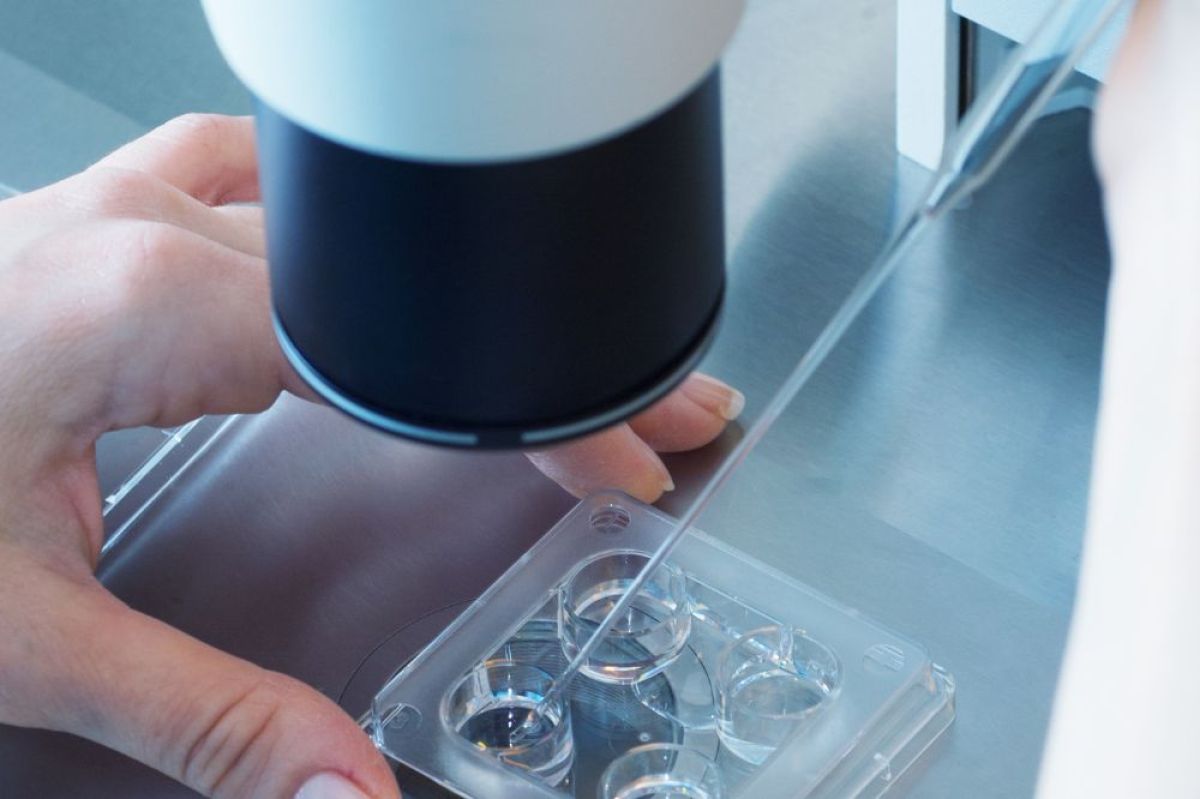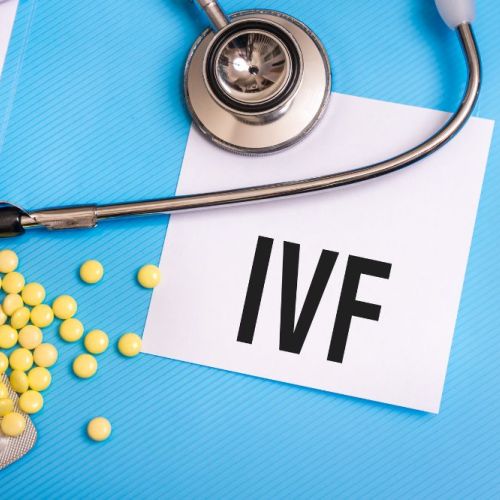Advantages of Artificial Insemination

If you have been unable to get pregnant after a year of trying, you’re not alone because infertility is experienced by as many as 1 in 6 people. There are many possible causes of infertility, and determining the underlying cause is the best way to find an effective fertility treatment for you. Artificial insemination, which is also called intrauterine insemination, is one of the most common fertility treatments and there are several advantages of artificial insemination.
Simple Noninvasive Procedure
One of the biggest advantages of artificial insemination is that it’s a simple, noninvasive procedure. To improve your chance of success, artificial insemination may be combined with medication to stimulate ovulation before the procedure is done. It’s an outpatient procedure that’s painless and only takes a few minutes. You won’t need anesthesia and it’s a form of treatment that most closely resembles natural conception.
After the procedure, you may lie on your back for approximately 30 minutes and then you’re able to go home. Two weeks after the procedure, you take a pregnancy test. If you’re not pregnant, the procedure can be repeated.
Sperm is Treated to Help Achieve Better Results
Natural conception requires the sperm to travel from the vagina and through the cervix to the uterus. When an egg is released, the sperm and egg travel to the fallopian tube, which is where fertilization happens.
Artificial insemination gives you a greater chance of attaining pregnancy because the sperm is washed and treated so that only the highest quality sperm is used. It’s inserted directly into the uterus, which means the sperm travels a much shorter distance. The sperm that’s used can be from your partner or from a donor.
Low Cost
Artificial insemination requires fewer visits than other forms of fertility treatment such as in vitro fertilization. You don’t need an operating room, which helps to reduce the cost. Since there isn’t as much involved in this form of treatment, the cost of artificial insemination is low compared to other types of fertility treatment.
Determining the Best Fertility Treatment
Choosing a fertility treatment starts with a thorough medical exam and family medical history for both you and your partner, which may include blood work and diagnostic testing. This may help to pinpoint the cause of your fertility challenges. Infertility is sometimes related to problems with the woman’s reproductive system while other times there are male-related problems or problems with both the man and the woman.
Artificial insemination may be worth trying if the cause of infertility is unexplained. It may also be a good choice for women whose fertility issues are related to the cervix, particularly thick cervical mucous. It may also be a good choice if your partner has low sperm count. This procedure also gives single women and LGBQT couples the opportunity to conceive a child.
The Center for Reproductive Studies has helped many women to achieve a successful pregnancy using artificial insemination and other forms of assisted reproductive technology. Call today with any questions you may have or to schedule an appointment.
Eliran Mor, MD
Reproductive Endocrinologist located in Encino, Santa Monica, Valencia & West Hollywood, CA
FAQ
What does a reproductive endocrinologist and infertility specialist do?
Reproductive endocrinology and Infertility is a sub-specialty of Obstetrics and Gynecology. In addition to managing medical and surgical treatment of disorders of the female reproductive tract, reproductive endocrinologist and infertility (REI) specialists undergo additional years of training to provide fertility treatments using assisted reproductive technology (ART) such as in vitro fertilization.
Reproductive endocrinologists receive board certification by the American Board of Obstetrics and Gynecology in both Obstetrics and Gynecology and Reproductive Endocrinology and Infertility.
When should I see an REI specialist?
In general, patients should consider consulting with an REI specialist after one year of trying unsuccessfully to achieve pregnancy. The chance of conceiving every month is around 20%, therefore after a full year of trying approximately 15% of couples will still not have achieved a pregnancy.
However, if a woman is over the age of 35 it would be reasonable to see a fertility specialist earlier, typically after 6 months of trying.
Other candidates to seek earlier treatment are women who have irregular menses, endometriosis, fibroids, polycystic ovary syndrome (PCOS), women who have had 2 or more miscarriages, or problems with the fallopian tubes (prior ectopic pregnancy).
What are the reasons we are having trouble conceiving?
Approximately 1/3 of the time cause for infertility is a female factor, 1/3 of the time a male factor, and the remaining 1/3 a couples’ factor.
At CCRH, we emphasize the importance of establishing a correct diagnosis. Both partners undergo a comprehensive evaluation including a medical history and physical exam.
Furthremore, the woman’s ovarian reserve is assessed with a pelvic ultrasound and a hormonal profile. A hysterosalpingogram (HSG) will confirm fallopian tube patency and the uterine cavity is free of intracavitary lesions. A semen analysis is also obtained to evaluate for concentration, motility, and morphology of the sperm.
Additional work up is then individualized to direct the best possible treatment option for each couple.
What is IVF? What is the process like?
In vitro fertilization (IVF) is the process that involves fertilization of an egg outside of a woman’s body.
The process starts with fertility drugs prescribed to help stimulate egg development. In your natural cycle, your body is only able to grow one dominant egg, but with stimulation medication we can recruit multiple eggs to continue to grow. After about 8-10 days of stimulation, the eggs are surgically retrieved and then fertilized with sperm in a specialized laboratory. Fertilized eggs are then cultured under a strictly controlled environment within specialized incubators in the IVF laboratory for 3-5 days while they develop as embryos. Finally, embryos (or an embryo) are transferred into the uterine cavity for implantation.
Should I have IVF?
Before deciding if IVF is the right choice, it’s important to sit down with an REI specialist to discuss available treatment options. For some people, other methods such as fertility drugs, intrauterine insemination (IUI) may be the best first choice treatment. At CCRH, we believe each individual couple is unique and not everyone needs IVF.
Is the IVF procedure painful?
While not painful, the fertility medications may some side effects including headaches, hot flashes, mood swings, and bloating. The injection sites may also bruise.
Will IVF guarantee a baby?
Unfortunately, no. Many people think once they start IVF it’s a matter of time that they will be pregnant and have a baby. But according to national statistics per the Society of Assisted Reproduction (SART), on average 40% of assisted reproduction cycles achieve live births in women under age 35. The chances of success then continue to decrease with advancing age.
At CCRH, we employ only evidence-based interventions to ensure patient safety and optimal outcome. While we cannot guarantee a baby, we guarantee that you will receive the best, most advanced, personalized care to help you maximize your chance of a baby.
What is the success rate for IVF?
The average IVF success rate (success measured in live birth rate) using one’s own eggs begins to drop around age 35 and then rapidly after age 40. This is due to the decline in egg quantity and egg quality as a woman ages.
Our clinic’s success rate consistently beats the national average year after year.
Do insurance plans cover infertility treatment? How much does IVF cost?
Individual insurance plans often do not have any coverage for infertility treatments. If you have a group plan, you can call members services to see if they have coverage for infertility (including consultation/workup and IVF).
After your consultation with our REI specialist, one of our dedicated account managers with sit with you to go over the cost of treatment.




